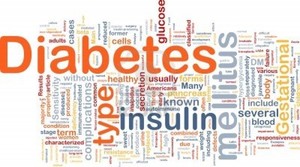In June 2020, the Australian Diabetes Society, Australian Diabetes Educators Association and Diabetes Australia, published a position statement on the use of biosimilar ‘insulins’ for diabetes.
Australian diabetes organizations issue biosimilars position statement
Biosimilars/General
|
Posted 16/10/2020
 0
Post your comment
0
Post your comment

In Australia, amendments to the National Health Act contained in the National Health Amendment (Pharmaceutical Benefits) Bill 2015 will allow substitution of biosimilar drugs at the pharmacy level. However, in their position statement, the diabetes organizations make it clear that they are opposed to biosimilar insulin substitution at the pharmacy level as there is insufficient evidence of safety.
The statement highlights that there is insufficient evidence with respect to clinical equivalence of biosimilar insulins and originators, and pharmacodynamic (PD) and pharmacokinetic (PK) similarity is not necessarily enough to assume clinical equivalence. Here, they give the example of changing from porcine to human insulin which occurred in the 1980s. The two insulins demonstrate PD and PK similarity, however there were many reports of patients experiencing hypoglycaemia when they changed to human insulin. As such, it is evident that caution is needed when changing between insulins, including biosimilar insulins. In addition, the statement notes that diabetes requires long-term treatment and, as of yet, there is no evaluation of the long-term impact of switching to a biosimilar.
At present, over 370,000 Australians with diabetes currently use insulin therapy. Considering this, pharmacy-level substitution could seriously disrupt diabetes management for large numbers of people with diabetes. Specifically, the position statement notes that there are important considerations that must be taken account of when it comes to delivery and dosage of insulins. Exact dosing is crucial and when switching to a biosimilar this may need to be altered. If so, a different delivery device may need to be used which requires training and input from diabetes healthcare professionals.
The diabetes organizations finalize their statement by noting that they support substitution of insulins under appropriate medical supervision. In these cases, the diabetes healthcare team, including diabetes educators and practice nurses, should be involved. In addition, they state that they look forward to working with the Pharmaceutical Benefits Advisory Committee (PBAC) to ensure efficacy and safety issues remain paramount when considering biosimilar insulins. They remain at the forefront when it comes to ensuring that appropriate measures are in place to safeguard the health of those in Australia with diabetes.
Related articles
Switching from biologicals to biosimilars in Australia
Biosimilar Awareness Week in Australia
New information on biosimilars from Australia and the US
Biosimilars approved in Australia
Permission granted to reproduce for personal and non-commercial use only. All other reproduction, copy or reprinting of all or part of any ‘Content’ found on this website is strictly prohibited without the prior consent of the publisher. Contact the publisher to obtain permission before redistributing.
Copyright – Unless otherwise stated all contents of this website are © 2020 Pro Pharma Communications International. All Rights Reserved.
Research
Reaching ESG goals in pharmaceutical development
What is the future for the US biosimilar interchangeability designation
News
FDA approves Poherdy (first interchangeable pertuzumab) and Armlupeg (pegfilgrastim) biosimilars
EMA recommends approval for insulin glargine biosimilar Ondibta and denosumab biosimilar Osqay
Most viewed articles
The best selling biotechnology drugs of 2008: the next biosimilars targets
Global biosimilars guideline development – EGA’s perspective
Related content
Samsung Bioepis wins Pyzchiva case; Regeneron patent rulings threaten foreign biosimilars
Chinese biosimilars go global: growth, partnerships, and challenges
Stelara biosimilars enter US market with 85% discount in 2025
IFPMA publishes position on pharmacy-mediated substitution for biosimilars
Samsung Bioepis wins Pyzchiva case; Regeneron patent rulings threaten foreign biosimilars

Biosimilars/General Posted 30/07/2025
Chinese biosimilars go global: growth, partnerships, and challenges

Biosimilars/General Posted 30/04/2025
IFPMA publishes position on pharmacy-mediated substitution for biosimilars

Biosimilars/General Posted 21/03/2025
The best selling biotechnology drugs of 2008: the next biosimilars targets







Post your comment